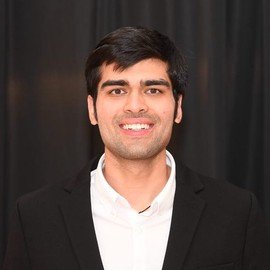CS&E Colloquium: Adaptive Experimental Design to Accelerate Scientific Discovery and Engineering Design
The computer science colloquium takes place on Mondays and Fridays from 11:15 a.m. - 12:15 p.m. This week's speaker, Aryan Deshwal (Washington State University), will be giving a talk titled "Adaptive Experimental Design to Accelerate Scientific Discovery and Engineering Design".
Abstract
A huge range of scientific discovery and engineering design problems ranging from materials discovery and drug design to 3D printing and chip design can be formulated as the following general problem: adaptive optimization of complex design spaces guided by expensive experiments where expense is measured in terms of resources consumed by the experiments. For example, searching the space of materials for a desired property while minimizing the total resource-cost of physical lab experiments for their evaluation. The key challenge is how to select the sequence of experiments to uncover high-quality solutions for a given resource budget.
In this talk, I will introduce novel adaptive experiment design algorithms to optimize combinatorial spaces (e.g., sequences and graphs). First, I will present a dictionary-based surrogate model for high-dimensional fixed-size structures. Second, I will discuss a surrogate modeling approach for varying-size structures by synergistically combining the strengths of deep generative models and domain knowledge in the form of expert-designed kernels. Third, I will describe a general output space entropy search framework to select experiments for the challenging real-world scenario of optimizing multiple conflicting objectives using multi-fidelity experiments that trade-off resource cost and accuracy of evaluation. I will also present results on applying these algorithms to solve high-impact science and engineering applications in domains including nanoporous materials discovery, electronic design automation, additive manufacturing, and optimizing commercial Intel systems.
